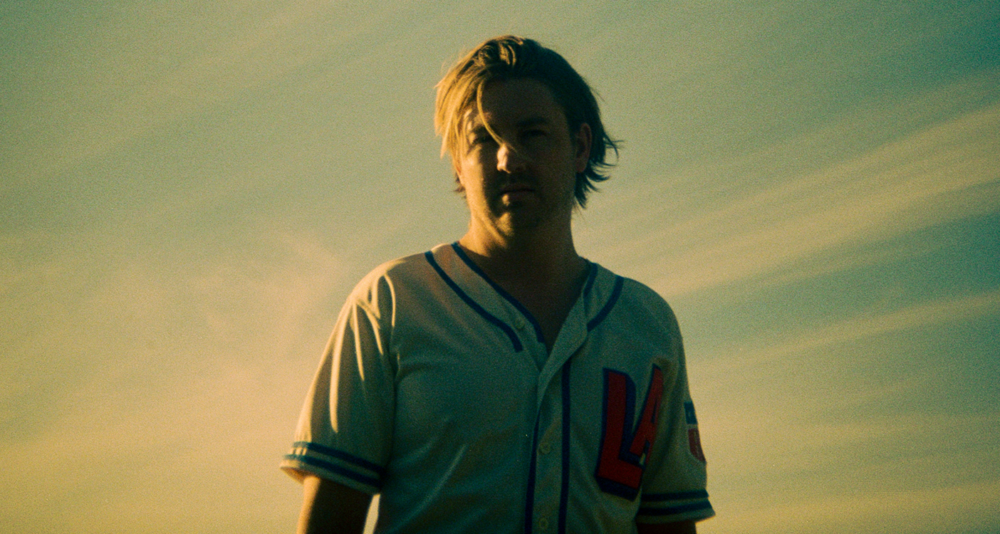Tyson Motsenbocker

About
Bio – Tyson Motsenbocker 2022_TMedits
Where do dreams go when you become an adult?
Well, they don’t disappear or dissolve into the ether. Those dreams simply change with you. However, it doesn’t mean you can’t s=ll grasp the way they made you feel. As such, we treasure memories by recalling them and sharing them as o@en as possible. Tyson Motsenbocker preserves those youthful memories in his music, etching them into the fabric of the songs. The Washington-born and California- based singer and songwriter encases them in lithe melodies, upbeat soundscapes, and ponderous lyrics.
A@er genera=ng tens of millions of streams and cul=va=ng a devout fan base, he examines the jump from childhood to adulthood – or maybe just the space between the two – on his third full-length offering, Milk Teeth [Tooth & Nail].
“I tried to make this album about the fear of adulthood,” he states. “I spent my twen=es in a house by the beach in San Diego. All we did was make music and surf all of the =me. I arrived at this endless summer, but it was the emp=est place I could imagine. I felt like my life hadn’t started. During the months before this record, I realized I was actually living though. A big part of growing up is the realiza=on you spend your whole childhood dreaming, but when you get ‘there’, it’s nothing like you hoped it would be. It was =me to embrace adulthood by embodying it en=rely, embracing the miracle of surviving your childhood, even with disappointment that accompanies it.”
Tyson has consistently tuned into such emo=ons with relatability and vulnerability. Following his 2016 debut LP Le1ers to Lost Loves, he spent as much =me as possible on the road, performing countless shows and cap=va=ng audiences across America and beyond. However, he connected deeply on 2020’s Someday I’ll Make It All Up To You. CCM Magazine awarded it a perfect score of “5-out-of-5 stars” and proclaimed, “The result is an album perfectly imperfect, perhaps best exposing Motsenbocker’s sincerest agenda to tell the truth.” Meanwhile, “Autumn Love” was genera=ng two and a half million Spo=fy streams. The followup single “Sunday Morning” followed close behind with nearly two million Spo=fy streams.
Just a handful of shows into what was booked to be a two year touring schedule, Covid 19 shut all touring down. Motsenbocker and his band headed home, where a period of reflec=on ensued, se]ng the founda=on for what would become Milk Teeth.
“When the world shut down, I thought about what it meant to be an adult a lot,” he reveals. “I think adulthood finally dug me out of the sand when I met my wife – a Canadian who was locked on the other side of the border. But it was such a beau=ful thing to take responsibility. Responsibility for her, for myself, for the future I wanted to have not only in my own life, but in the world around me.”
Tyson hit the studio in Orange County, California with producer Nathan Cimino, drummer James McCalister, bassist Patrick Dodd and keyboardist Mabhew Wright. Thema=cally reflected in the =tle (another name for “baby teeth”), the music struck a sweet spot akin to the “summer aLer you graduate from high school where you’re walking the line between the confusion and excitement of childhood and the gravity of being an adult.”
Now, he introduces the album with “Carlo Rossi.” On the track, upbeat guitar echoes through an electronic beat as his breathy verses give way to a blissful bridge, “Where did I go right to have you like this?”
“I spent a lot of =me in Mexico, down in Sinaloa where the cartels were really ac=ve.” he notes. “It was this enormous chaos, but we would buy these gallon bobles of Carlo Rossi wine and pretend we were in John Steinbeck’s Sweet Thursday. The world right now is completely off the rails. I’ve never been less certain about the future. At the same =me, I’m falling in love, I decided to grow up, and everything is wonderful in so many ways. ‘Carlo Rossi’ is about having a party against the backdrop of chaos.”
Elsewhere, “Wendy Darling” takes flight on glimmering keys as a hypno=c refrain resounds. He also experiences an intense awakening, “I knew it happened, like Wendy Darling, when there was no wonderful thing I would not leave behind.”
“When I got older, I finally understood Peter Pan is the villain,” he observes. “He’s trapping everyone in this false state of prolonged adolescence. Wendy is the hero. I was at a point in my life where there was nothing incredible enough to keep me away from the responsibili=es of growing up. You don’t want to go back to youth, even when it defines everything that comes a@er.”
Then, there’s “Oh, No (Regarding Panic Abacks, 2016-2021).” Strings glow next to his hushed delivery as he bemoans, “Oh no, here comes the fear.”
“About seven years ago, I started having panic abacks,” he admits. “I knew it was going to happen at the end of the day around 6pm or 7pm. I could feel it in my chest; my blood pressure would be really high. I’d go to sleep and wake up at 3am in a night terror. I don’t even know why it would happen, which is what was so scary. It might’ve been due to this impending change and not knowing if I could survive in a world of adults.”
In the end, Tyson is an adult, and it ain’t so bad. In fact, it sounds beau=ful on Milk Teeth.
“I’m really grateful to be living in the moment I am,” he leaves off. “I’m in love. I have a place to live that I love. I have a job that I love. In the past, I was afraid everything would go away. Maybe what adulthood means, in the end, is to appreciate the good things you have while you have them.”